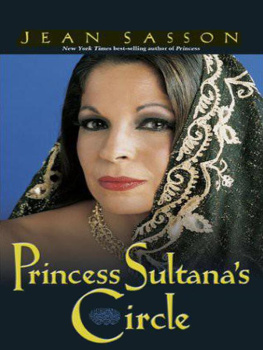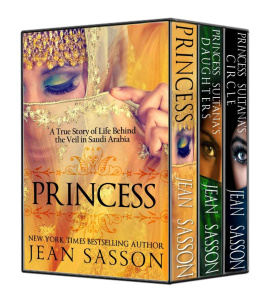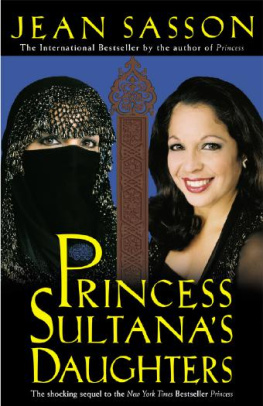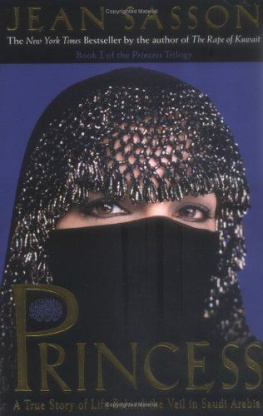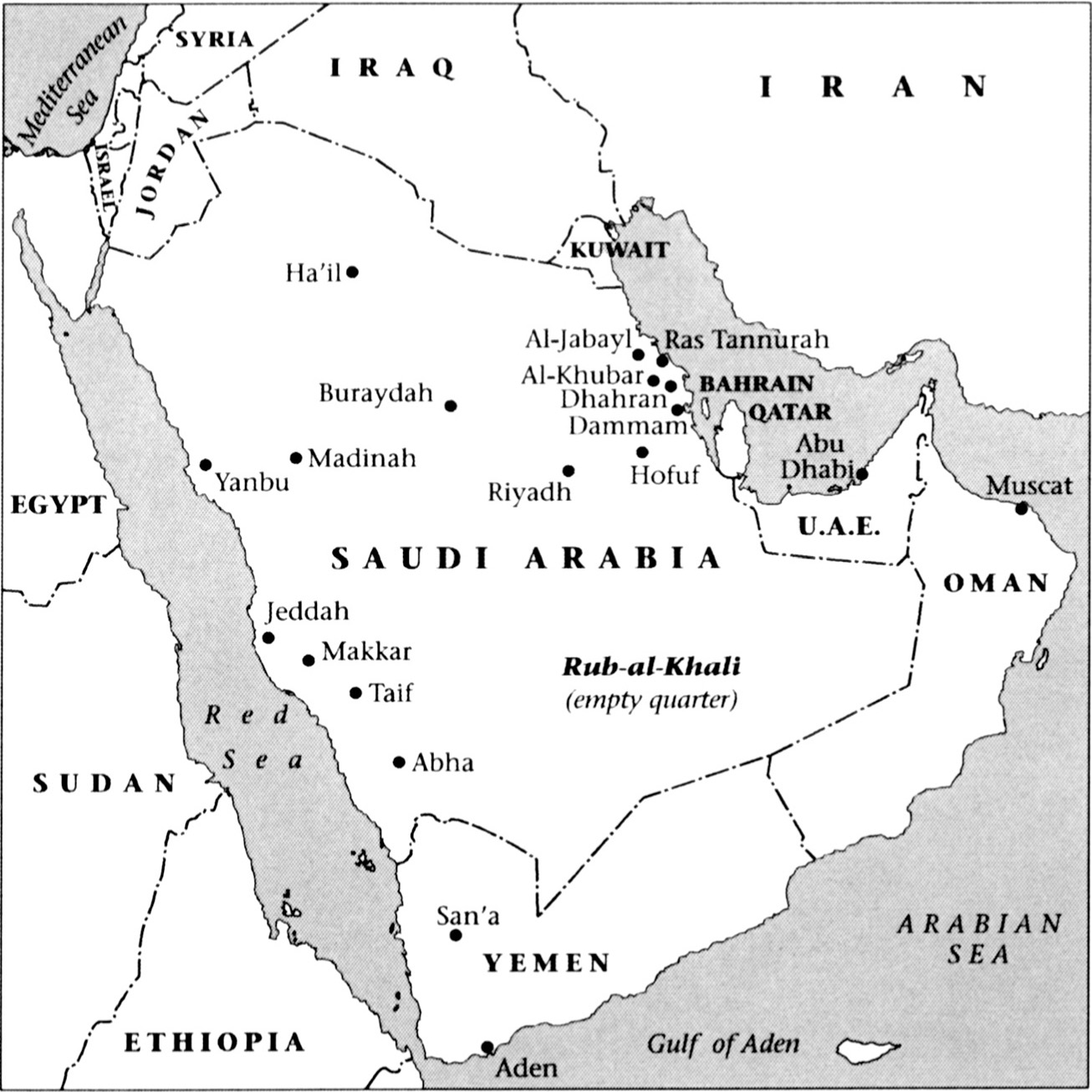About the Book
In the international bestseller Princess: The True Story of Life InsideSaudi Arabias Royal Family, Princess Al-Saud and the acclaimed author Jean Sasson began a remarkable series of books. Now, more than twenty-five years later, this compelling journey continues as we follow the fortunes and the dazzling life of the Princess, her friends and her family.
But, of course, there is a less glamorous, much darker side to this engaging series, and in Stepping Out of the Shadows Jean and the Princess focus their attention on how, despite positive news on civil rights reforms, Saudi women still suffer physical and psychological abuse and have little legal protection due to the archaic guardianship laws of the land. So, although this is a kingdom on the threshold of revolutionary change change spearheaded by the young Saudi Crown Prince who is keen to modernize his country any thoughts of equal rights or an independent life remain little more than dreams for most Saudi women.
Whilst the Princess acknowledges and welcomes the reforms that are on the horizon, through stories of joy and sorrow, we see her determination to continue to fight for women in this, her beloved kingdom.
Contents
To the girls and women of Saudi Arabia who have suffered and died under the archaic guardianship laws of our country, we will remember you.
And to those suffering still, help is on the way.
All that is written here is real.
Some of the stories are very happy while some are tragically sad.
But all are true.
A few names have been changed to protect those who would come to great harm should their true identity be known. But the names of many others have been revealed.
Jean Sasson and Princess Sultana al-Saud
SAUDI ARABIA
A Note from Jean Sasson
As of January 2018, there have been five books written and published about the extraordinary Princess Sultana, a high-ranking member of the House of al-Saud. These books share details of her personal life, and they reveal her tremendous courage and resourcefulness as she battles on behalf of womens rights in Saudi Arabia and around the world, for there is discrimination against women in nearly every country.
The books I have written about Princess Sultana have been embraced by women and men in eighty editions of the first book, Princess, distributed worldwide in approximately forty countries. The books about this remarkable woman made the bestseller list in every country where they were published. Astonishingly, they have never gone out of print in a publishing world where most non-fiction books fade away from public attention within a few years.
Now, after twenty-six years, interest in Princess Sultanas life has not diminished, rather it has flourished. This makes the Princess series (now a collection of six books) a phenomenon in the world of non-fiction publishing. No other book in this genre has ever kept the interest of readers in this fashion.
Why has this happened?
The answer is simple. The generation of girls and women who first embraced the captivating story of a Saudi princess guided their daughters to the princess, and now the granddaughters of the original readers are also following the life of Princess Sultana. Furthermore, mothers, wives, daughters and sisters are steering the men in their lives to read the books, expanding curiosity about a princess born in the desert of Saudi Arabia. This word-of-mouth from mother to daughter, from aunt to niece, from grandmother to granddaughter, from neighbour to neighbour, and from wife to husband, has resulted in many thousands of new readers eagerly anticipating further stories from deep within a mysterious kingdom one on the threshold of change.
During the late summer of 2017 and early 2018, electrifying announcements came from the kings palace regarding the rights of women. After years of struggle, hope and anticipation, positive changes for Saudi Arabian women were suddenly being discussed publicly. These changes, which have the potential to affect all Saudi women, are now on the verge of becoming a reality. Princess Sultana and I concurred that such exciting events make it imperative to keep readers informed.
The princess and I are delighted to report on the marvellous reforms coming to the country she loves. We shall continue to write about how the women of Saudi Arabia are affected, as well as the ongoing battles for and against women in other lands where millions continue the struggle to live in peace and with freedom. This includes those who were born and raised in the United States and Europe who have also faced discrimination.
Thus, with book six, Princess, Stepping Out of the Shadows, we hope to inform, inspire and celebrate the coming changes that will ensure every female will have the right to live in dignity, regardless of her country, race, religion or culture. Perhaps Saudi Arabia will surprise the world and become a guide-post for all countries that continue to face the intricate problems of female inequality.
Introduction by Princess Sultana al-Saud
To readers who may be questioning if anything is new with the women of Saudi Arabia, my response is swift. Yes! A wind of change is blowing through this kingdom a wind that is bringing optimism and hope to its people.
Yet, before we revel in joy, our optimism must be tempered, for one major obstacle stands between Saudi women and true freedom, and it relates to the guardianship law in our land, which threatens to dilute any promises made to women. For those unfamiliar with this archaic practice, they should know that every female born in Saudi Arabia is shackled by a law that bequeaths men the automatic right of absolute control over the women in their family. This burdensome law remains intact even as our future king proclaims his plans to allow Saudi women the joy of full personal freedom.
But let me look to all that is positive, and begin to explain how and why I am hopeful that we are on the threshold of change.
The first question that will come to most minds is this: What or who has brought about this sudden and startling reversal regarding the status of women in the desert kingdom?
All who study civilization know that social change is seldom simple, and this is doubly true for Saudi Arabia. Why? Because it is the land best known around the world for harsh, rigid rules that are hostile to half the nations citizens its women.
Through my intimate knowledge of Saudi Arabia and its royal family, readers will learn that two forces are behind this much-desired and needed reform.
The first is time the history of civilization tells us that time alters all things.
The second is a lone man. Unrivalled in our modern life when it comes to boldness and courage, he is set on a path to transform an entire nation. This is the man who is spawning the ideas of freedom so long lodged in the hearts of many Saudi women and some Saudi men. This is the man who will be king.
Muhammad bin Salman bin Abdul Aziz al-Saud is the son of the present king, Salman, and the grandson of the first king, Abdul Aziz. He was always an exhausting force to those around him. Even from the time he was a toddler, little Muhammad never stopped moving forward. This is according to his own mother, who is one of my royal cousins. The young Muhammad was an unusual boy; he had such an optimistic nature that he constantly exhibited a broad smile. His dashing personality could not hide his fondness for fairness. Despite his cheerful attitude, he was applauded for his quick and deep intellect. Educated as a lawyer, this serious-minded student was second in his class.

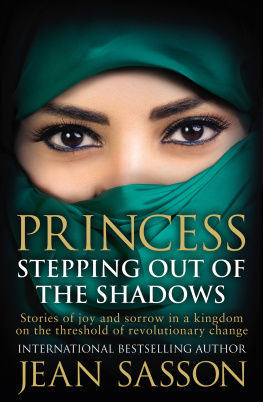
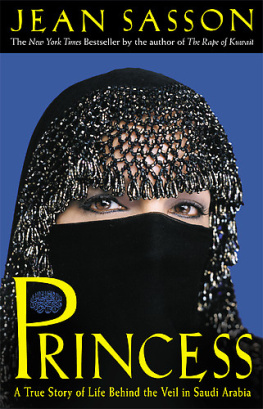


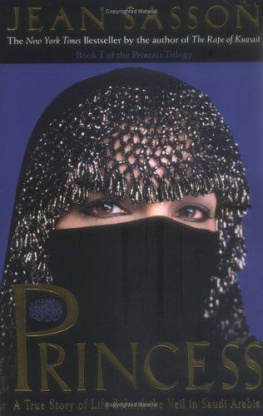
![Sasson Jean - Jean P Sasson: [Princess 02]](/uploads/posts/book/233851/thumbs/sasson-jean-jean-p-sasson-princess-02.jpg)
